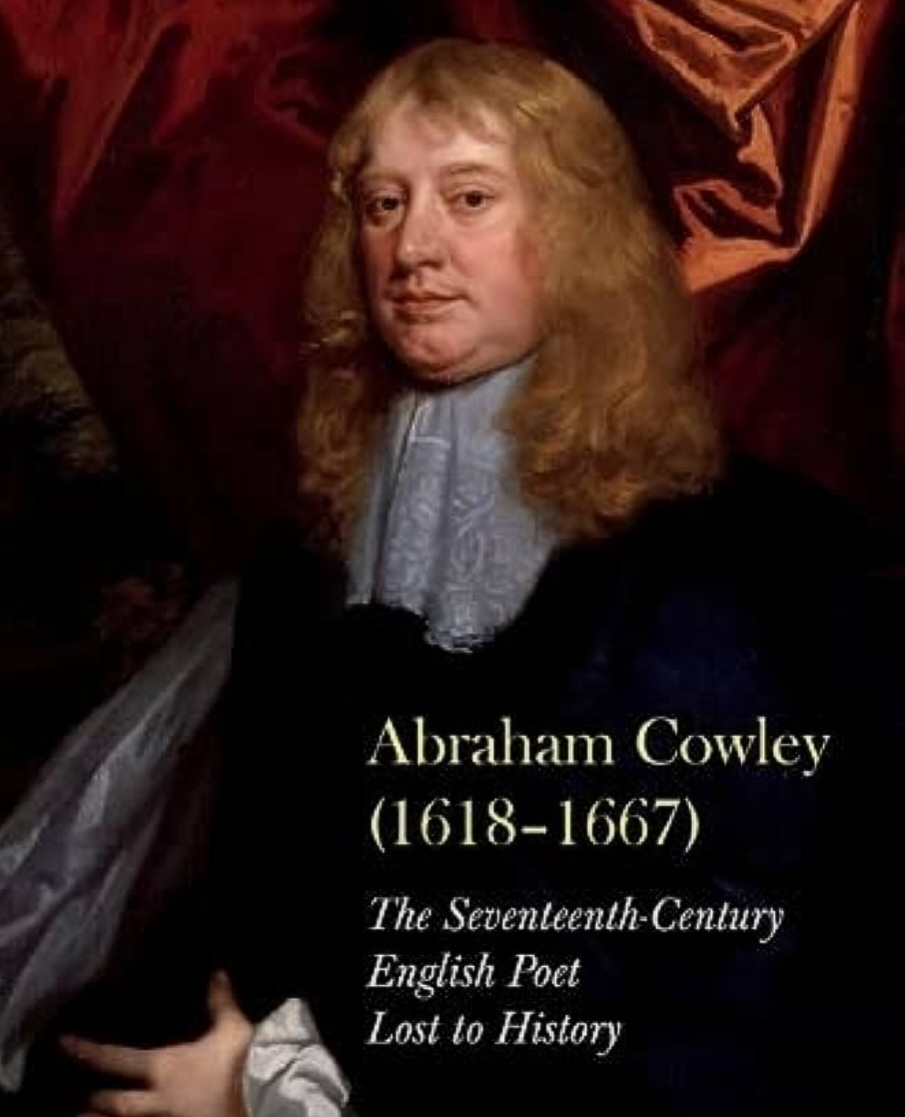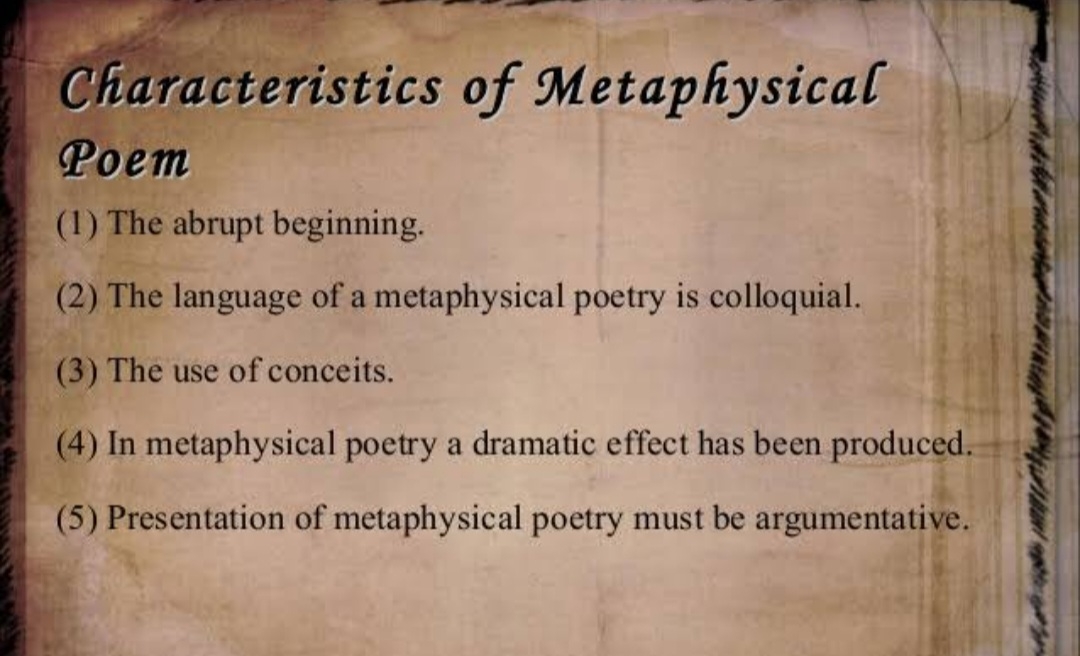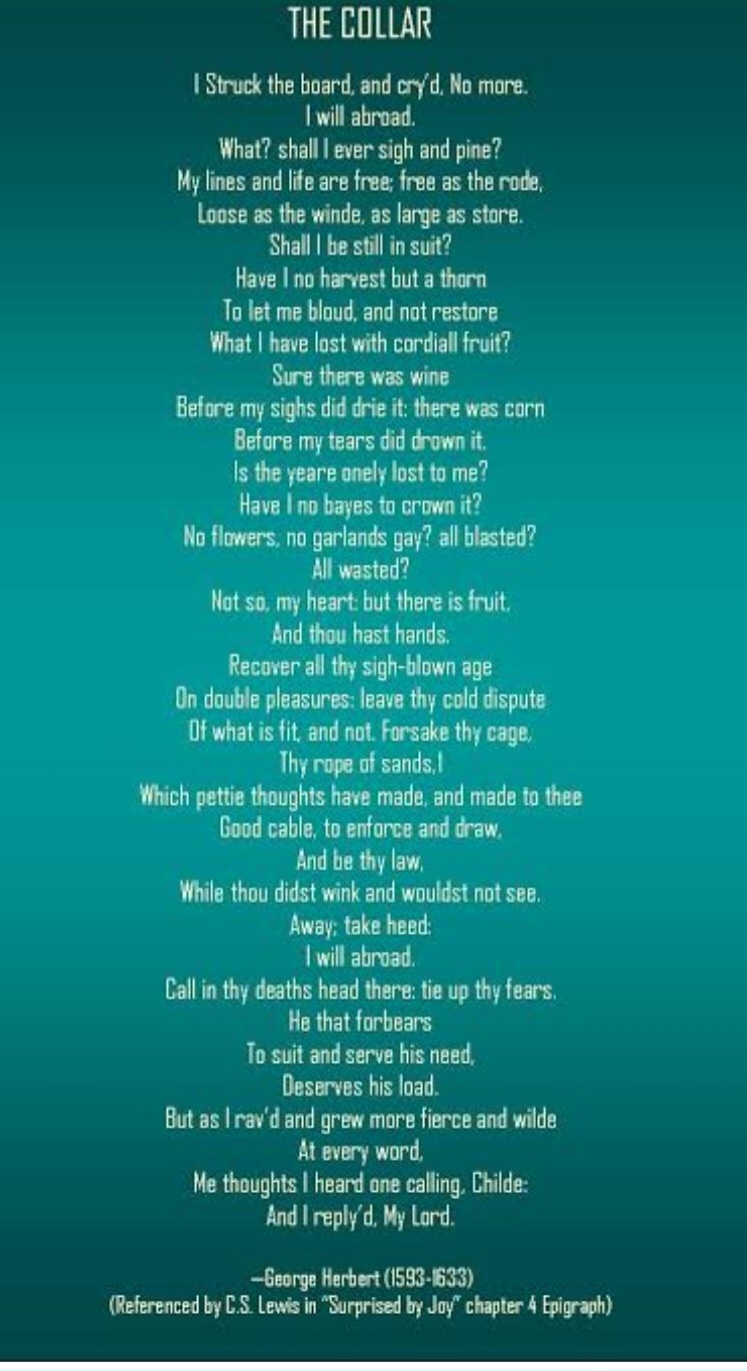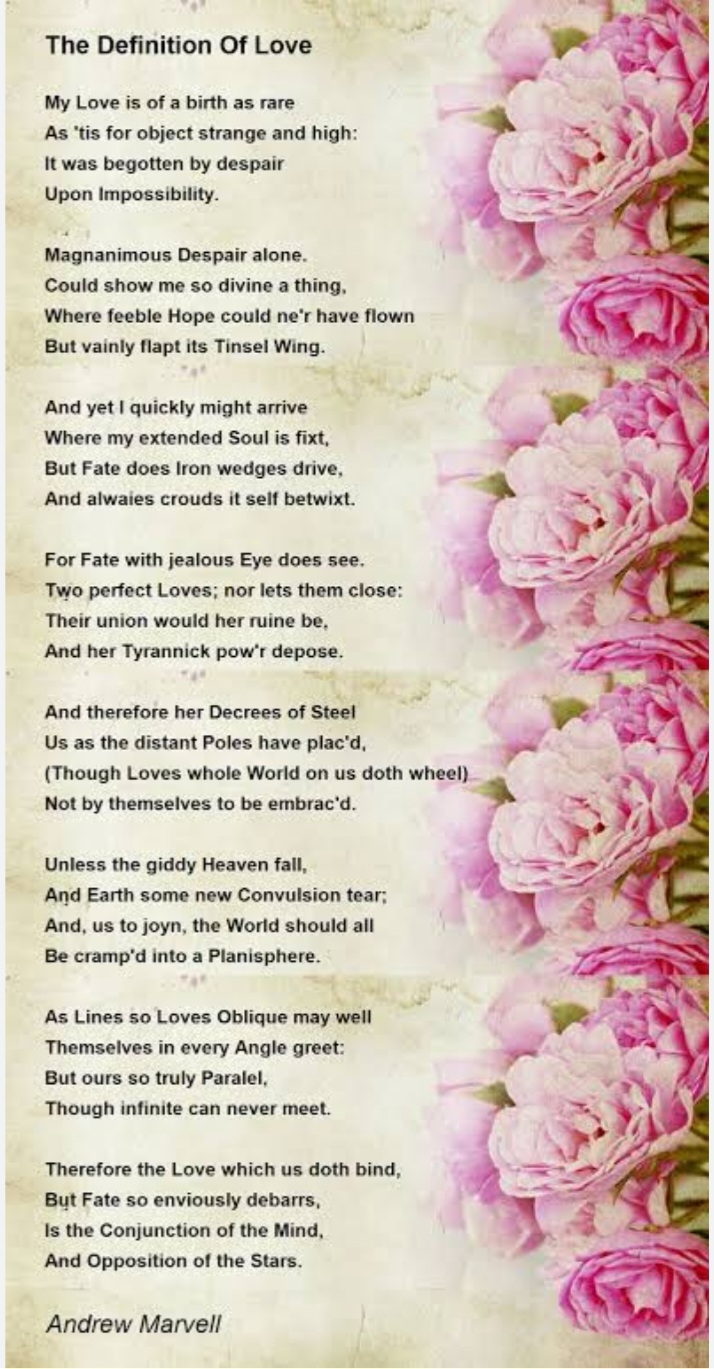Hello readers !
I am Divya jadav a student of English literature at maharaja krishna Kumar Singhji Bhavnagar University.
OUESTION : -ABOUT METAPHYSICAL POETRY
WHAT IS THE METAPHYSICAL POETRY ?
Metaphysical poetry is marked by the use of elaborate figurative languages, original conceits, paradoxes, and philosophical topics. Metaphysical poetry was at its peak during the seventeenth century in England and continental Europe. The movement explored everything from irony to philosophy and conceits.
1) History of metaphysical poetry:-
Metaphysical poetry is a literary movement that emerged in the 17th century, primarily in England.
It is characterized by a complex and intellectual style that explores abstract themes, often blending the spiritual with the physical.
Here's a brief history :
1.ORIGINS:-
Metaphysical poetry is closely associated with John Donne, who is considered the founder of the movement.
Donne's poems, written in the late 16th and early 17th centuries, are known for their metaphysical conceits and exploration of topics like love, religion, and the human soul.
2.CHARACTERISTICS:-
Metaphysical poets are known for their use of elaborate metaphors, paradoxes, and wit.
They often employed dramatic and colloquial language to grapple with deep philosophical questions.
3.PROMINENT POETS:-
Alongside John Donne, other notable metaphysical poets include George Herbert, Andrew Marvell, and Henry Vaughan.
Each contributed unique perspectives and styles to the movement.
4.INFLUENCE:-
Metaphysical poetry had a significant influence on later poets, including the likes of T.S. Eliot and W.H. Auden.
Its emphasis on intellectual engagement and exploration of complex themes left a lasting mark on English literature.
5.DECLINE:-
The metaphysical style gradually gave way to other literary movements in the later 17th century, such as the Restoration period, which favored more straightforward and classical forms of expression.
Overall, metaphysical poetry is known for its intellectual rigor, intricate wordplay, and exploration of profound ideas, making it a distinctive and enduring part of literary history.
2)Who were the metaphysical poets ?
Metaphysical poet, any of the poets in 17th-century England who inclined to the personal and intellectual complexity and concentration that is displayed in the poetry of John Donne, and Others include Henry Vaughan, Andrew Marvell, John Cleveland, and Abraham Cowley as well as, George Herbert and Richard Crashaw.
JONNE DONNE :
He is considered the preeminenrepresentative of the metaphysical poets. His poetical works are noted for their metaphorical and sensual style and include sonnets,lovepoems,religious poems, Latin translations, epigrams, elegies, songs and satires. He is also known for his sermons.
ANDREW MARVELL:
Andrew Marvell is considered one of the metaphysical poets. Like John Donne, he wrote poems that relied on metaphysical conceits, the witty, elaborate comparisons that characterize metaphysical poetry. Also like Donne, many of his poems debate spiritual issues and the transitory nature of life.
ABRAHAM COWLEY:
Abraham Cowley (1618-1667):According to Dr. Johnson, Abraham Cowley Metaphysical poet. The Mistress (1647) is his well-nigh far-famed work that was the essential nature of the Metaphysical appreciation poem. His imaginativeness and graceifulness of language reached him in the standings of a Metaphysical poet.
3) Characteristics of metaphysical poetry:
Metaphysical poetry is a style of poetry that emerged in the 17th century.
It is characterized by several distinctive features:
1.Conceit:
Metaphysical poets often used elaborate metaphors and extended comparisons known as conceits.
These metaphors could be complex and unexpected, drawing connections between seemingly unrelated ideas.
2.Intellectualism:
Metaphysical poetry is known for its intellectual and philosophical themes.
Poets of this genre often explored profound questions about love, religion, and the nature of existence.
3. Paradox:
Metaphysical poets employed paradoxical statements and arguments to provoke thought and challenge conventional wisdom.
Paradoxes are contradictions that reveal deeper truths.
4.Wit and wordplay:
Wordplay, puns, and clever use of language were common in metaphysical poetry.
This added depth and complexity to their poems.
5. Allusion:
Metaphysical poets frequently made allusions to classical literature, mythology, and the Bible, assuming a well-educated readership.
6 .Irregular meter and rhyme:
Unlike the strict rhyme and meter of earlier poetic forms, metaphysical poetry often employed irregular rhythms and rhyme schemes, giving their work a more conversational tone.
Prominent poets associated with the metaphysical style include John Donne, George Herbert, and Andrew Marvell.
Their work remains influential in the world of poetry due to its innovative approach and exploration of profound themes.
4.Examples of metaphysical poems:-
Here are a few examples of metaphysical poems and their respective poets:
1). John Donne, ‘The Flea’.
How little that which thou deniest me is;
It sucked me first, and now sucks thee,
And in this flea our two bloods mingled be;
Thou know’st that this cannot be said
A sin, nor shame, nor loss of maidenhead,Yet this enjoys before it woo,And pampered swells with one blood made of two,
And this, alas, is more than we would do …
Like many of the best metaphysical poems, ‘The Flea’ uses an interesting So strength first made a way;
Then beauty flowed, then wisdom, honour, pleasure.
When almost all was out, God made a stay,
Perceiving that, alone of all his treasure,
Rest in the bottom lay …and unusual conceit to make an argument – in this case, about the nature of physical love.
2)George Herbert, ‘The Collar’.
When God at first made man,Having a glass of blessings standing by,‘Let us,’ said he, ‘pour on him all we can.Let the world’s riches, which dispersèd lie,Contract into a span.’
So strength first made a way;Then beauty flowed, then wisdom, honour, pleasure.
When almost all was out, God made a stay,
Perceiving that, alone of all his treasure,
Rest in the bottom lay.
3)Andrew Marvell, ‘The Definition of Love’.
In his poem 'The Definition of Love' (1681), Andrew Marvell argues that love is dictated entirely by fate and that humans have very little control over it.
My love is of a birth as rareAs ’tis for object strange and high;It was begotten by Despair
Upon Impossibility.
Magnanimous Despair aloneCould show me so divine a thingWhere feeble Hope could ne’er have flown,But vainly flapp’d its tinsel wing the term ‘metaphysical poetry’ to a clear example, we could do worse than this poem, from Andrew Marvell (1621-78). In ‘The Definition of Love’,.
5) .Samuel Johnson- metaphysical poets:
Samuel Johnson was not a metaphysical poet himself, but he was a renowned English writer, critic, and lexicographer in the 18th century.
He is best known for his "A Dictionary of the English Language" and his critical works such as "The Lives of the Poets."
Johnson often criticized the metaphysical poets of the 17th century, like John Donne and George Herbert, for their use of complex and unconventional metaphors and their intellectual and abstract style.
Johnson's literary criticism played a significant role in shaping the perception of these poets and their work.
Samuel Johnson, the 18th-century English writer and critic, is not typically associated with being a metaphysical poet.
Instead, he is known for his critical writings and contributions to English literature.
Johnson did, however, write poetry in a different style, particularly in his poem "The Vanity of Human Wishes" and his satirical work "London," but his poetry is not considered metaphysical in nature.
The metaphysical poets, like John Donne and George Herbert, were a distinct group from an earlier century known for their comhttps://chat.openai.com/auth/loginplex and intellectual style, which Johnson critiqued rather than emulated in his own poetry.
Thankyou for visiting.....💐













